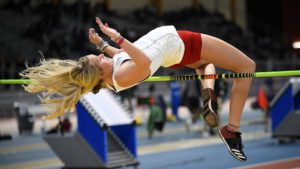30 Day Challenge/Day 22: Setting the Standards
What is “good?” This is a difficult question as it is a very subject answer. What one person might think is “good” another may seriously argue against. McDonald’s is not my favorite hamburger, in fact I haven’t eaten there in years. However, they’ve sold billions and have a lot of fans. Does that mean they make a good hamburger?
Over all the years there has been this question about what makes someone good at the Martial Arts? Ironically there are a lot of qualities that individually could be qualified as good. I have always joked “I don’t know but I do know when I feel it!”
As we were looking at establishing a level of quality for each of our ranks we struggled with the setting the “litmus test.” Then Mr. Dan Lovejoy introduced us to this process he knew of establishing standards. We laid it out and applied it to all our expectations and it seem to be just the measurements we wanted.
For our beginning students there were 2 thing that seem important as they are learning to control themselves-
Define – Can the student tell us what this basic, form, principles, etc. is? How closely in their own words can they describe for us what they are attempting to do and why they would do it?
Show – Can they show it to us? Can they do it with no resistance (in the air, by themselves) Do they have a level of coordination? Can they show us their correct dimensions? (See Day 14- Controlling Dimensions) Do they have the proper Height – Width – Depth, is it at the correct angle, are they expressing themselves, etc
As they develop a level of skill we then move to an intermediate level:
Use – Can they use their skills? First in levels with little to no intensity and then over time increase the levels. (See Day 8: Better Bad Guy and Day 9 Training Relationships) Do they understand at some level how to apply the principles? Can they interact in a defensive and fighting setting?
Connect – Can they connect what they are doing to other things they do? For Example do they understand that how they form a Reverse Bow is the same as a Forward Bow just that they turn to face a different direction? That all maneuvers are a combination of stepping and dragging? That this defensive pattern is the same as this other defensive pattern only at a different height zone? That a right hand grab, right hand push, right hand punch are all the same linear attacks and a single defense could minimize each with the same level of effectiveness? That these set of basics all come from the same “Master Key?”
Formulate – To Formulate is to move freely within actions applying principles. It uses Mr. Parker’s concept that “To any given Base- You can Add, Alter, Adjust, Rearrange, Regulate, or Delete.” As students begin to connect their art, the skill to Formulate or “fit” their actions to solve the problem and apply the “Cycle of Considerations” to any given situation.
As the student moves to the advanced levels it is important that they fully experience the skills and knowledge they have been developing:
Test – Now obviously at every level of growth there is “testing” but now we want to seriously test everything for ourselves and fully understand what works best for us. Mr. Parker and his art have been well known to “Tailor to the Individual.” To Tailor though it is important that you experience what works and what doesn’t work. Seeking to expand your options and minimize difficulties. If we are only exposed to a few methods we tend to think they are the only ones. However, we may find that there is something out there that works better for us. The more we are exposed too the better we can use a logical process in our determinations. (See Day 30- Most Logical)
This is the stage where we really what to AMP up the intensity and fully understand our skills. Once again failure is not a bad thing it merely helps us to understand our limitations and what we need to do to overcome them.
Master – Although I’m not a big fan of this word as personally I don’t think we truly ever achieve it. As we approach a level of Mastery we become more aware and realize what we thought was the measurement of Mastery has moved and we continue towards it. However being versed and having experienced at a level all of the standards sets a foundation for reaching a level of mastering ourselves. So to master anything especially ourselves it is a lifelong process because our desire to grow and improve should be like a wild beast that we continually must work to master.


